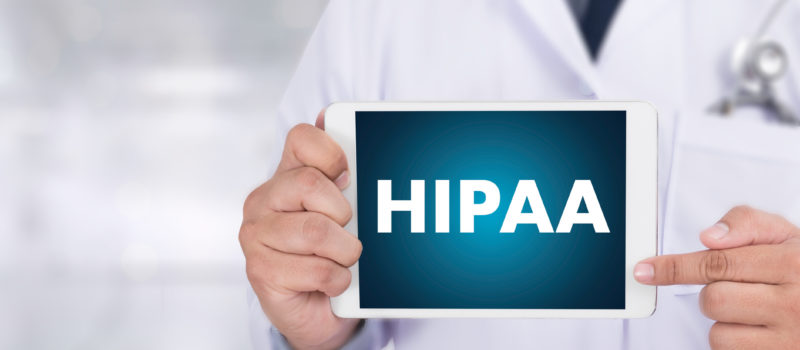Voice over Internet Protocol technology has helped many organizations modernize and optimize their communications. Among that group are medical and wellness companies that have adopted VoIP for healthcare.
However, a healthcare communications system must comply with Health Insurance Portability and Accountability Act regulations for patient privacy. Not doing so can be financially costly and detrimental to your brand.
Find out what a VoIP system needs to be compliant with HIPAA. Also, see how you can set up worry-free communications that cut expenses and make your team more efficient.
Key Takeaways:
- VoIP for healthcare ensures HIPAA compliance and provides features for efficient collaboration.
- Healthcare teams must take additional precautions with communications over internet fax and SMS text messaging.
- Using HIPAA-compliant VoIP helps you provide a better patient experience.
What Is VoIP for Healthcare?
VoIP is a technology that enables communications through the internet. It turns text, audio, and video information into digital data packets for online transmission.
VoIP for healthcare must go above and beyond a standard phone service. For instance, you may have encountered free VoIP apps for personal use. However, these do not offer the stringent privacy requirements for most business transactions, let alone healthcare organizations.
Additionally, free and limited VoIP systems do not offer a private branch exchange that securely connects the phone lines of a professional team. In contrast, VoIP for healthcare meets all needs for your company’s internal collaboration. It also ensures confidential communication with your patients.
What Makes a VoIP System HIPAA-Compliant?
HIPAA has five primary rules that cover patients’ protected health information. However, three particular aspects of the law pertain to VoIP for healthcare.
Privacy Rule
All PHI comes under HIPAA’s Standards for Privacy of Individually Identifiable Health Information. The essence of the rule is that patients have certain rights over the use of their PHI and can easily access it.
In most cases, a health professional must get written permission before using or disclosing someone’s PHI. The rule also includes provisions that ensure providers have reasonable access to PHI to render effective care.
Security Rule
The security rule narrows the focus to specifics about storing, using, and sharing electronic PHI. It gives guidelines that keep outsiders from accessing data at rest (stored PHI in a database).
The rules also protect data in transit. In other words, safety measures must be in place that keep someone from intercepting PHI that you transfer electronically. These measures also apply to discussing PHI over digital communications channels, such as voice or video calls.
Items that need specific security measures include:
- Call logs and caller ID info
- Call recordings, voicemail, and voicemail transcriptions
- SMS text messages
- Internet fax or fax to email
Therefore, any VoIP for healthcare you use must provide encryption over these channels or restrict their functionality when handling PHI.
Business Associate Agreement Requirements
Your VoIP provider should guarantee that it will obey HIPAA’s guidelines for comprehensive security. Communications vendors do this with a Business Associate Agreement. The BAA is a requirement that covers 10 key provisions to protect PHI.

Not all cloud VoIP providers offer a BAA for HIPAA. That includes some popular paid providers on the market, so you have to carefully choose your cloud communications provider for compliance.
Who Must Comply With HIPAA’s Rules?
HIPAA mentions three primary entities that must comply with its rules:
- Providers of healthcare services, such as hospitals, physicians, and clinics
- Health payers, such as insurance companies and health maintenance organizations
- Healthcare clearinghouses that process data for claims processing
In fact, any company that works with these covered entities and has any level of access to PHI is a business associate. Therefore, these companies need VoIP for healthcare to comply with HIPAA.
What Do You Need To Know About HIPAA Compliance for SMS and Web Fax?
VoIP for healthcare is often part of unified communications as a service (or at least it should be). This service brings all of your communication channels under one platform.
Still, these channels have some differences in how they transmit messages. You might do everything in your power to transmit PHI securely through text and web fax. Your patient, however, might not have proper controls on their end. That’s why many healthcare companies or associates do not use fax-to-email services or SMS text messages.
That doesn’t mean you can’t communicate with patients through these means. You could opt to chat with patients in these ways without discussing PHI. Or you may be able to transmit certain confidential information as long as the patient signs a waiver.
Protect your team and patients by discussing these concerns with your legal advisors. Additionally, users of Intermedia’s cloud communications can consider these issues with our always-available support advisors for practical pointers to keep in mind before deciding.
Our support library also provides helpful resources. (For example, we have a guide on what types of WebFax are fully encrypted, HIPAA-compliant communications.)
What Are the Benefits of Using HIPAA-Compliant VoIP for Healthcare?
HIPAA-compliant VoIP for healthcare lets you offer a great virtual patient experience. Streamlined communications facilitate patient engagement for improved outcomes and increased adherence to treatment programs.
Your team also benefits from enhanced collaboration. Now, anyone can work in a hybrid or remote setup securely. Your healthcare VoIP system ensures protected communications across various devices for flexibility and productivity.
It also seamlessly integrates with productivity software, such as Office 365, offering greater efficiency. Best of all, doing this with VoIP has greater cost savings than you can get with traditional phone lines.

How Can Your Team Easily Implement VoIP for Healthcare?
Though VoIP for healthcare requires strict adherence to HIPAA, setting up a compliant system doesn’t have to be difficult. Talk to the experts at Intermedia to find out how to install a HIPAA-compliant healthcare VoIP service that protects your team and patients.
July 26, 2024
Explore other posts on these topics: Healthcare




